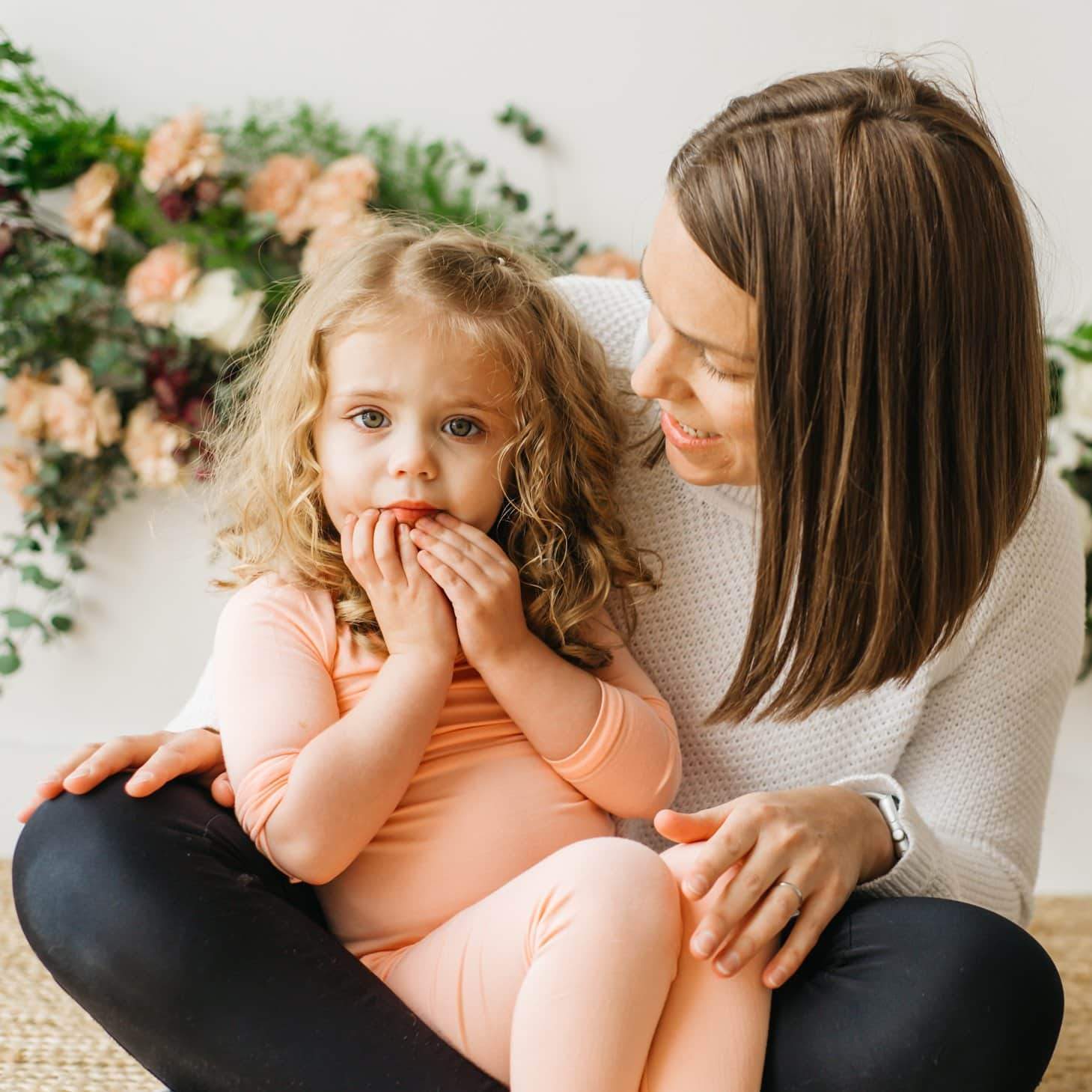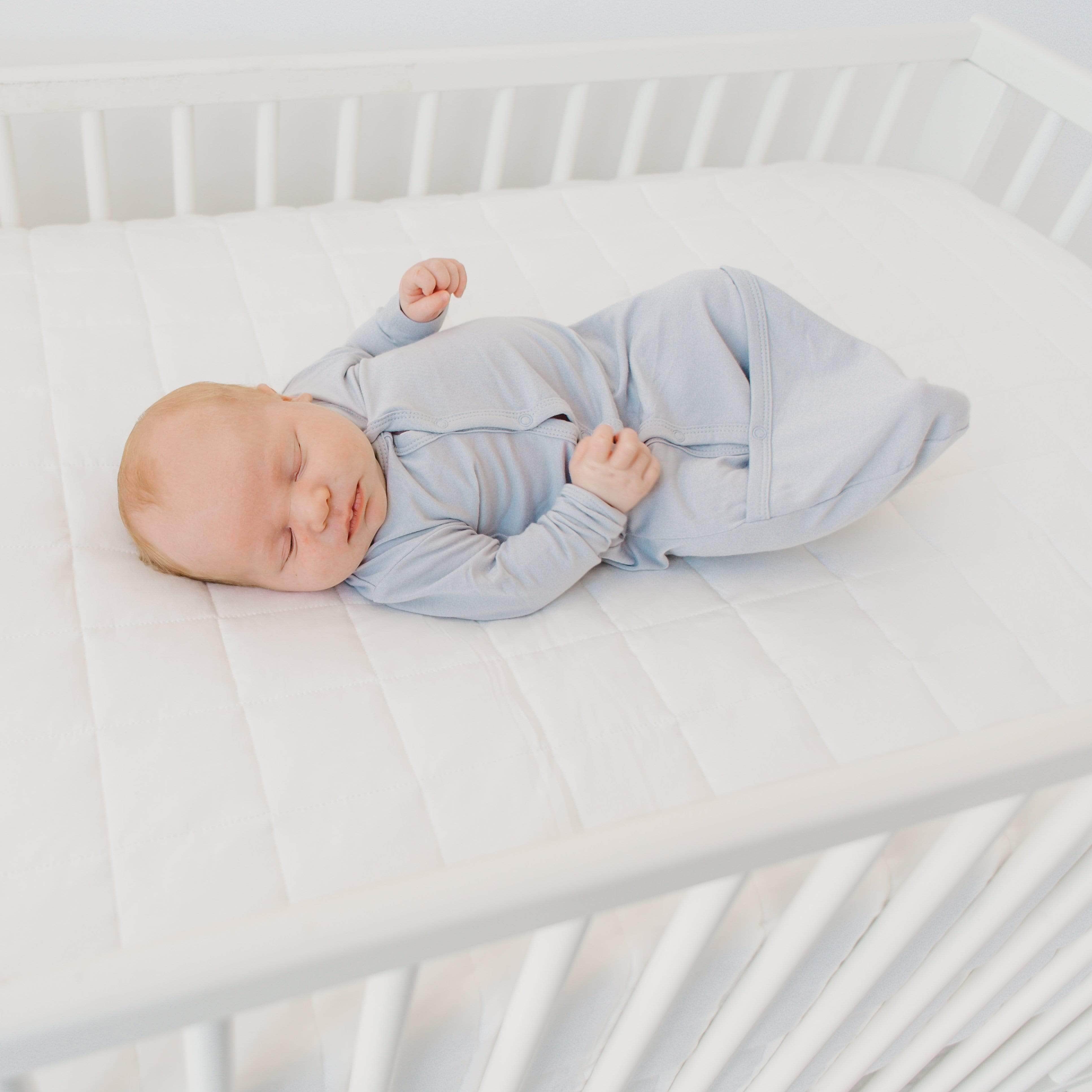How would you describe a “good” day? One that started with a balanced breakfast? Had few to zero tantrums? Made time for you and your partner? One where kiddo took a good nap? All of this can be achieved by simply following a routine. With a routine in place, you can actually pencil in time for each of these things (minus the tantrums) throughout your day.
A routine is a sequence of events that happen around the same time and in the same way every day. By sticking to one, you and your child have a better chance of accomplishing everything that needs to get done that day and having fun along the way.
Here are five reasons why routines are crucial for your sanity and your child’s development plus two sample routines you can adopt in your daily life.
Routines Reduce Stress
By following a routine, you and your child know what to expect throughout the day, saving your sanity. How often do we grab at straws when it comes to thinking of ways to entertain our kiddos? One too many! With the aid of a routine, you don’t have to ask yourself what will happen next because you and your child already know. In a way, it’s like having a map for a road trip — you know where you are going, how long it will take you and where to stop for gas and potty breaks along the way. Wow, what a relief!
The opposite is true too. Without one, you would be lost, hungry, uncomfortable and tired. This is kind of how life looks without a set routine: If your child wakes up before you, you have no time to get yourself ready for the day. If you rush through mealtime because your child wants to play outside, then you will be hungry. If you skip naptime to run an errand, then you’ll have a crabby kid for the rest of the day. But with a routine, you and your child will know what to expect every hour of the day thereby reducing tantrums, wasted time and the frustration that comes with frantically deciding what to do next.
Kids experience stress and anxiety too, especially in new situations, but routines minimize that by being predictable and giving them a sense of control. When you follow a similar routine each day, your child will grow to expect that sequence of events. For example, if your morning routine is wake up, potty or diaper change, get dressed and eat breakfast, then your child will understand that “when I wake up, I go potty” or “after I get dressed, I go to the kitchen and eat breakfast.” With this expectation in mind, your child will be on board and go with the flow without protest.
You’ll also save your brain power for something rewarding like planning your family’s summer vacation or even getting that stain out of the couch.
Routines Promote Healthy Development
When a child follows a routine, they feel safe, cooperate and practice self-mastery. The feeling of safety is difficult to harness for young children who have very little control over their lives; therefore, establishing a routine gives them a pattern to follow and eventually take ownership of, fostering independence and creativity.
And since babies and toddlers grow and experience new things every day such as sleep regression, trying new foods, teething, going to daycare or school, routines offer stability and grounding in a world of consistent change. Change can be scary, so by sticking to a daily schedule, children become more compliant and cooperative because it is the one thing they can rely on and somewhat control.
When they repeat tasks like getting dressed, brushing teeth and cleaning up, they practice self-discipline and work towards self-mastery. For example, on the weekends, my toddler has grown accustomed to going on a morning outing with her dad. On those mornings, he says, “Let’s get ready to go outside. Let’s put our socks and shoes on and our jacket.” As expected, she needed assistance with these tasks at first but, after weeks of routine practice, she can now do them on her own. So now, when I say “Let’s get ready to go,” she anticipates what needs to happen next so that she can go outside. She follows through with independence and without protest and your toddler can too!
Routines Develop Good Habits
Let’s face it, if toddlers made the rules, they would run around naked all day pounding on a smartphone and eating gummy bears, which is why they don’t run the show … you do! To make your job easier, implement a routine that incorporates good hygiene habits into your baby’s schedule.
These habits like washing hands and brushing teeth are second nature to us but for kids, they are important skill sets that need practice every day until they are mastered. Unfortunately, these are the habits that are not super fun for kids to perform, but one way to motivate them is to recite the routine, “After you wash your hands, you can eat your favorite dino nuggets for lunch.” Or, “After you brush your teeth, we can read books.” A routine sets the standard to accomplish something and move on or reap the reward.
Of course, not all chores and habits necessitate a reward. After all, there are no free lunches in life, right? Routines teach the concept of work and establish a standard and expectation. Even though your child may hoop and holler every time you wipe his hands and mouth after a meal, sticking to the routine reinforces expected and required behavior. Eventually, the act of repetition will reduce the power struggle and your child will conform to the good habit.
Routines bring comfort and stability to a small child’s ever-evolving world. By sticking to a routine, they learn the pattern of daily life and follow rules that keep them safe, healthy and happy.
Routines Foster Creativity
“Rules,” “pattern,” “conformity” — it all may sound like a regimented life with no room for fun but that’s not the case. Routines provide the framework in which children can explore, learn and grow which is, after all, their main job. If it weren’t for a routine that allotted time for independent or structured play, then a child’s natural curiosity might get her into trouble like exploring the utensil drawer or figuring out how doorknobs work. Instead, schedule a play hour and guide a child’s free-flowing curiosity to her toys, building blocks, paper and crayons or anything else she can use as a canvas for creativity.
Routines Equal Responsibility
Young children are not in control of their life. They don’t really get to decide how their day unfolds. We as the parent decide almost everything for them because we want them to be healthy, clean, productive and happy. But give a kid expectations and the right tools, and watch as he makes independent and responsible choices. What do I mean? Building a chore chart.
Building a chore chart with your little gives them the opportunity to make positive decisions. Begin by drawing pictures or cutting out images from a magazine (you can also purchase chore charts on Etsy or find more DIY inspiration on Pinterest) that demonstrate the routines your child is expected to follow that day. Scatter them all around and ask your child to line them up in the sequence he would like to follow for the day (children think of time linearly instead of cyclically like a clock, as we do). Guide his thought process in a logical direction like, if he wants to get dressed after lunchtime, help him understand that he needs to get dressed before lunchtime, preferably at any point in his wake up routine so that he is ready to eat and play. He will enjoy the decision-making process, take an active role in planning his day and may even remind you what comes next. Now wouldn’t that be nice!
So now that you know how to put an end to flustered days and wasted time, here are a couple ways to apply that knowledge in real life.
A Sample Toddler Routine
- 7:30am Wake up/morning cuddles
- Potty/Diaper change
- Wash up: brush teeth, comb hair, wash hands and face
- Get dressed
- 8:00am Breakfast
- Clean up
- Get ready to go out
- 8:45am Outdoor playtime, walk, park, playground or outing
- 10am Snack and free play
- 10:30am Independent playtime and clean up
- 11:15am Lunch
- Cleanup and wash up
- 12:00pm Nap
- 3:00pm Wake up
- Potty/change diaper
- 3:15pm Snack
- 3:30pm Screen time/playtime together with mom
- 5:00pm Clean up and Wash up
- 5:30pm Dinner as a family
- Cleanup
- 6:00pm Bathtime
- 6:30pm Get ready for bed
- Put on pajamas and sleep bag
- Brush Teeth
- Brush hair
- Read books
- Sing song/say prayers
- 7:00pm Good night
A Sample Mommy Routine
- 6:45am Wake up, make bed and get ready
- Stretch, shower, wash face, brush teeth, brush hair, put on makeup
- Get dressed
- 7:30am Morning routine with toddler
- 8:00am Breakfast and cleanup
- 8:45am Outing
- 10:00am Snack and cleanup
- 10:30am Set a timer for 45 minutes of independent play
(Read this post by mom and blogger Lauren Tamm for more information about independent play and how it will enrich your and your toddler’s day) so you can tackle chores while your LO plays
- Prepare lunch
- Check emails
- Do house chores like folding laundry, sweeping, dusting
- Work from home
- 11:15am Lunch and cleanup
- Help toddler wash up for naptime
- 12:00pm Naptime
- Take a nap, watch TV, read a book, relax for at least an hour
- Check emails/work, pay bills
- Chores
- Prepare snack and/or dinner
- 3:00pm After-nap routine with toddler
- 3:15pm Snack
- 3:30pm Structured play with toddler
Colors, numbers, shapes, fine motor skill activities, reading books, etc. (Join our Facebook group Kyte KLUB for great ideas for these activities from our community of moms)
- Screen time
- Finish prepping dinner
- 5:00pm Clean up and wash up
- 5:30pm Dinner as a family
- Cleanup together
- 6:00pm Bathtime
If one parent or caretaker helps with bathtime, the other can finish cleaning up the kitchen and dining area, put away leftovers
- 6:30pm Bedtime routine with toddler
- Review day
- Pick an outfit for tomorrow
- 7:00pm Good night hugs and kisses for toddler
Prep for tomorrow: pack diaper bag (don’t forget to pack your ring sling), toddler’s backpack, pack lunches
Final pick up of the house: tidy toys, pillows and general cleaning and organizing
- 7:30pm Exercise
- 8:00pm Shower and get ready for bed. Put on your cozy pajamas
- 8:30pm Quality time with spouse, relax or
- Self care time or
- Work from home or
- Hobby or
- Catch up with friends and family or
- Journal the day
- Pick outfit for tomorrow
- 10:30pm Goodnight
With a realistic routine in your back pocket, you can say goodbye to exhausted evenings and sleepy mornings, grumpy toddlers and inevitable tantrums. You’ll actually make time to pay the bills and finish a project instead of collapsing on the couch at 8pm and muttering to yourself “I’ll get to it tomorrow.” Break the cycle with a routine.
By Jessica Murrugarra


















